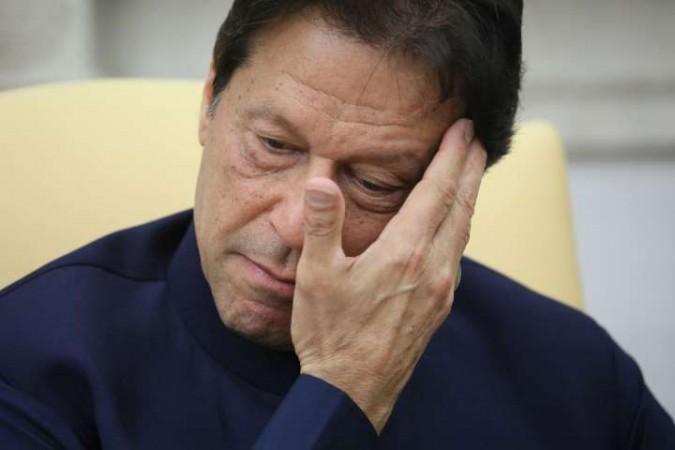
Indian Prime Minister Narendra Modi's meeting with US President Donald Trump on Monday on the sidelines of the G-7 summit in France may have cemented Pakistan's isolation over the Kashmir issue despite its incessant efforts.
The US President was told by PM Modi that India does not welcome a third party mediation on Kashmir. While Pakistan has sought support from international bodies on solving the widely disputed Kashmir issue - following the abrogation of the special status of Jammu and Kashmir under Article 370 of the constitution - many countries, including the US, have stated that the issue is bilateral.
The international community has echoed India's stance of the Kashmir issue being bilateral, under the Simla Agreement and Lahore Declaration. Even the foreign ministry's stance that the bifurcation of the state into two union territories - J&K and Ladakh - is an internal matter, has been accepted by various countries and the United Nations.
With Trump backtracking from his offer to mediate the Kashmir issue, Pakistan Prime Minister Imran Khan has turned belligerent.
In a special address to the nation, timed as the Modi-Trump talks were slated, and perhaps sensing the way the talks in Biarritz, France, would go, Imran Khan said that Islamabad's Kashmir policy was at a "decisive" point and slammed India for playing what he called "its last card" and vowed to "take the next step".

Khan said he will raise the Kashmir issue at every international forum, including at the UN General Assembly.
He assured the people of Pakistan that his government will stand by the Kashmiris till India lifts the restrictions in the Valley.
The Pakistan Prime Minister said that while Islamic nations are silent on Kashmir, they would have to speak up at some time.
For Pakistan, the Muslim world's backing of India and the UAE and Bahrain - two important members of the Gulf Cooperation Council - welcoming PM Modi with open arms this week, has come as a reminder that India, with its stable economy and forward-looking policies, is a favoured nation.
The UAE's conferment of the Order of Zayed, the Gulf nation's highest civilian honour, on PM Modi has added to the sense of bewilderment in Islamabad, that Islam cannot be considered the sole binding force anymore and that countries are looking beyond the confines of religion to the open, inclusive, progressive world order.
"I read in newspapers that people are disappointed that Muslim countries are not siding with Kashmir. I want to tell you not to be disappointed; if some countries are not raising this issue because of their economic interests, they will eventually take it up. They will have to, with time," Imran said.
In an effort to claim some modicum of victory, after going on a diplomatic overdrive to raise the Kashmir issue with almost every major world leader, Imran said that Pakistan had succeeded in internationalising the Kashmir issue.
"We have succeeded in internationalizing the issue of Kashmir, we talked to world leaders and embassies. The UN for the first time since 1965, convened a meeting on Kashmir issue. Even international media has picked it up," he said.
However, at the UN Security Council held a recent closed-door meeting. Pakistan's close ally China was the sole country that spoke against India at the Permanent five meet.
Even Imran Khan's regular tweets on Kashmir and his labelling of Modi as a "Fascist, racist, Hindu supremacist" leader have failed to get him the international traction he has wanted.
While Imran says he will raise the Kashmir issue at the UN General Assembly summit in September, Prime Minister Modi has already met UN Secretary Antonio Guterres on Sunday, on the sidelines of the G7 summit and held "fruitful discussions" with him. A photo of a smiling Guterres and Modi shaking hands after the meeting was tweeted by the PMO on Sunday night.
PM @narendramodi met @UN Secretary General Mr. @antonioguterres on the sidelines of the @G7 Summit. The two leaders had fruitful discussions on a wide range of subjects. pic.twitter.com/JuGsftQKRT
— PMO India (@PMOIndia) August 25, 2019
The successful meeting between Modi and the UN chief came after Pakistan Foreign Minister Shah Mahmood Qureshi called up Guterres to apprise him about the "evolving and delicate situation" in J&K. Qureshi said it was the responsibility of the international community to play a role in addressing the Kashmir situation.
Significantly, when PM Modi was asked about Kashmir at the media briefing in Biarritz, France, alongside Trump, he said: "India and Pakistan have several bilateral issues. And after the election of Prime Minister Imran Khan, I told him that both our countries suffer from the problems of poverty, illiteracy, backwardness and both should work together for the betterment of our people. This message I gave to the Pakistan Prime Minister, and I have conveyed this to President Trump as well, as we keep discussing our bilateral issues."
(With inputs from agency)









